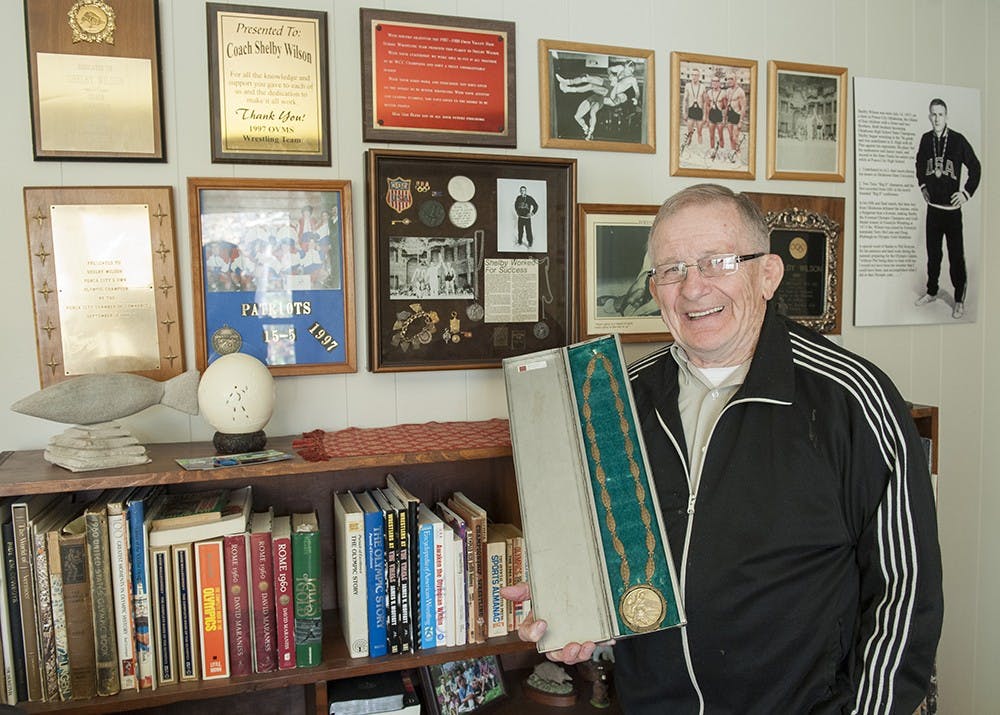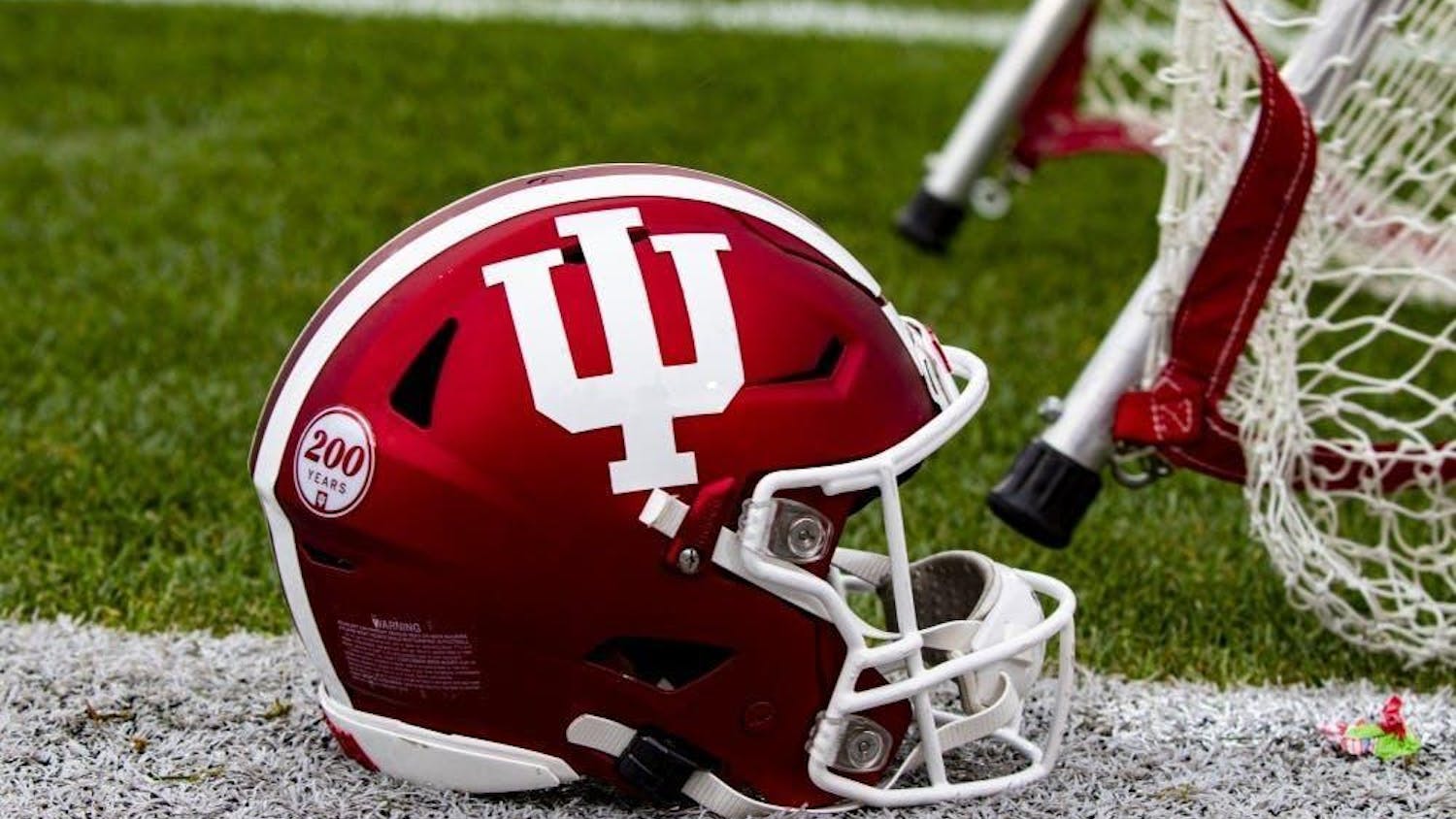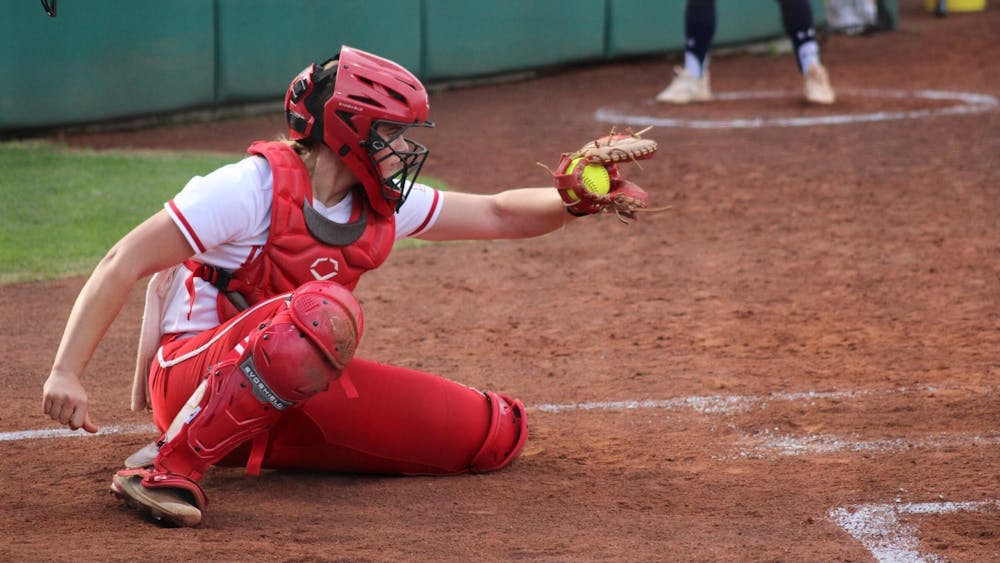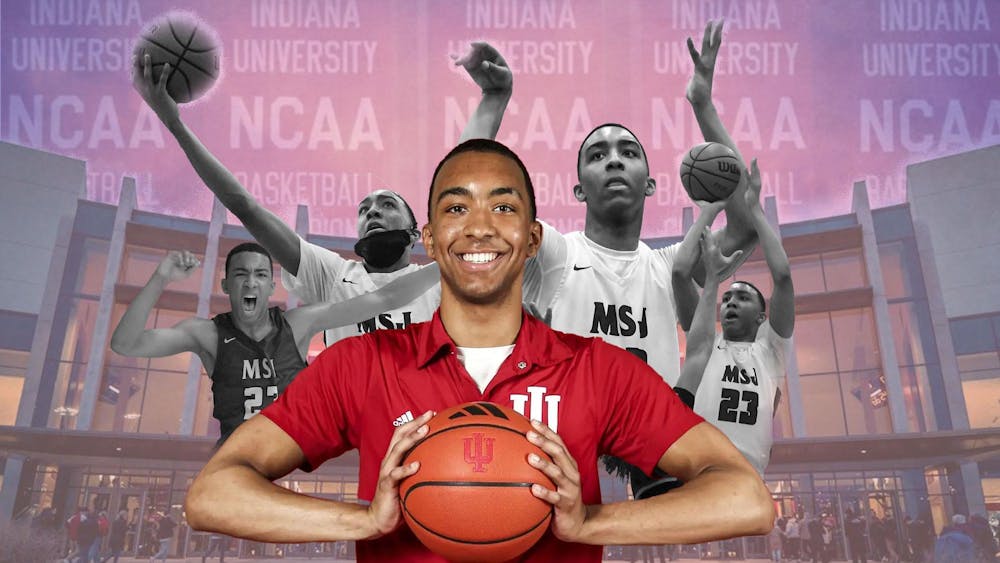“He’s really sweet, he points me in the right direction and gives me a lot of advice,” said Dee Boado, one of his nine grandchildren.
Shelby’s wife agreed, saying a lot of people come to their home asking for help.
“He gives people coats and fixes things for people,” Gretchen Wilson, Shelby’s wife, said. “A lot of people bring him things and ask him to fix it.”
Wilson’s former wrestling opponents, however, will tell you that the only thing they needed fixing were their ?broken spirits.
Reserved by nature, it is hard to tell at first sight that Wilson, who is just taller than 5-foot-6, was once an unmovable force on the ?wrestling mat.
He rarely speaks about the day in 1960 when he triumphed against a two-time Russian World Champion to win an Olympic Gold for the United States in the Basilica of Maxentius and Constantine ?in Rome.
His story is an unlikely tale of the triumph of the underdog of underdogs. Although only beaten twice in his career as a student athlete, Wilson had never won a national championship.
An injury ensured he would have to sit out collegiate wrestling in 1959. The hiatus prompted his coach to ask Wilson to consider trying out for the 1960 Summer Olympics.
Just like how he had never heard of the sport when he first picked it up at the age of 12 in a physical education class, Wilson had never given the Olympics a thought until a matter of circumstance gave his coach an idea: Wilson should try out for the U.S. Olympic team.
From that point in September 1959, Wilson had just eight months to prove that he was ready for the Olympics. He had to be ready for a style that he had never wrestled ?before.
The Greco-Roman and freestyle discipline in the Olympics were different from the American Collegiate style that Wilson was familiar with.
Wilson was not unaccustomed to challenges, though. He had checked in his gear during seventh grade, as a harsh winter would ensure that he had a harsh introduction to the sport.
“I lived out in the country so my dad had to come into town to pick me up, and it was the far other side of town,” Wilson said. “Oklahoma experienced an extremely harsh winter that year, and the PA usually made announcements for bad weather and the buses would come early to pick us up, so I either went home or got stuck ?after practice.”
He came back in the eighth grade and made the wrestling team. His physical education teacher who first introduced him to the sport noticed he had great potential. Soon, he became unbeatable.
“I was an immediate success for some reason,” Wilson said. “I started, and I never lost in junior high school. My first loss only came at the end of my sophomore year in high school.”
So for eight months prior to the Olympics, Wilson did everything in his power to prove that he was ready.
He stuck to what he knew and adapted it to the rules the Olympics had at that time.
“1960 was the first time that they decided to have a training camp,” Wilson said. “Usually they had one winner, and that guy would make the Olympic team, but you don’t get the best guy with one tournament.”
Wilson had five guys going up against him in his 147.5-pound weight class, but he was unfazed. He stuck to his plan and it worked to perfection, making him eligible to represent the U.S. in either the Greco-Roman or freestyle category.
After choosing to compete in the freestyle category, Wilson spent the summer training with his friend, Phil Kinyon, who was a NCAA champion and the first in the Olympic trials of the next weight class.
“I couldn’t have done it without him all summer,” Wilson said. “Whenever you win the Olympics you just can’t say, ‘Look at what I did.’ You got a lot of people to thank. I look back to my high school and all the way through college, all the guys that were pushing me and helping me.”
Despite arriving in Rome with only two losses, Wilson was an unknown on the international stage. He wasn’t one of the favorites. Vladimir Synyavsky was a two-time world champion representing the Soviet Union, and this was supposed to be his show.
Kazuo Abe, a Japanese wrestler who had recently defeated Synyavsky before was also touted as a potential medalist.
“I was given a snowball’s chance in hell to make the team, let alone win the Olympics,” Wilson said of his Olympic journey.
Wilson had to face these two opponents in his march toward the top of the ?podium.
However, he was not worried by the challenge that stood before him as he felt that getting to the Olympics was harder than actually competing at the Olympics.
Wilson recalls his bout with Abe, an opponent he held a huge amount of ?respect for.
“Many European wrestlers liked to stall and stay on the edge of the mat and run down the clock,” Wilson said. “This Japanese guy was very aggressive, and he came at me, but that worked against him as I got many takedowns and won 10-2. At the end of the match I shook his hand and appreciated the bout.”
His next match against Synyavsky would be one he considers his most memorable match as he beat a two-time world champion.
These two wins also gave Wilson a huge confidence boost and his last match against an Iranian opposition confirmed his status as the champion for the freestyle lightweight category. It would be the first and last Olympics that Wilson would compete in.
He has come a long way from his pre-wrestling days, where he was just another quiet boy who would go unnoticed in school.
“My personality was very quiet, and my high school coach told me once that had I not gone out for wrestling, I would have probably gone though the school system, and no one would have known my name,” ?Wilson said.
Wilson still coaches and gives wrestling clinics, but off the mat, he is back to his usual reserved self and just goes about his daily life as a grandfather in Bloomington.






